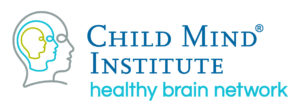
Children today seem like they were born with an iPad in hand. Toddlers might not be potty trained yet, but they know how to switch from one app to the other, Facetime their grandparents and even change WiFi networks. Researchers are still unsure as to what effects this precocious use of technology, particularly increased use of the internet, will have on children.
 In an attempt to address this important question, we analyzed data from the openly shared Child Mind Institute Healthy Brain Network. Children ages 7-15—and their parents—answered questions about their internet use, how well they sleep, how much exercise they get, and problems they might be having in school, at home, or with other social relationships. Each child also underwent comprehensive psychiatric assessments, which allowed us to examine how internet use might be associated with a range of different clinical syndromes including depression, anxiety, attention deficit hyperactivity disorder (ADHD), and autism spectrum disorders (ASD). Because many youth have more than one of these conditions, we also examined how comorbidity across these conditions may also be associated with problematic patterns of internet use.
In an attempt to address this important question, we analyzed data from the openly shared Child Mind Institute Healthy Brain Network. Children ages 7-15—and their parents—answered questions about their internet use, how well they sleep, how much exercise they get, and problems they might be having in school, at home, or with other social relationships. Each child also underwent comprehensive psychiatric assessments, which allowed us to examine how internet use might be associated with a range of different clinical syndromes including depression, anxiety, attention deficit hyperactivity disorder (ADHD), and autism spectrum disorders (ASD). Because many youth have more than one of these conditions, we also examined how comorbidity across these conditions may also be associated with problematic patterns of internet use.
We found that children who show problematic levels of internet use also have higher rates of depression, ASD and ADHD. We could not discriminate whether those with one or more of these disorders go on to have higher rates of problematic internet use, or if increased internet use was related to the development of psychiatric disorders and functional impairment. Nonetheless, these findings add to a growing literature suggesting associations between mental health disorders and problematic internet usage. We must proceed with caution: how can we discover what constitutes healthy patterns of internet use and make sure our children are taking advantage of all the benefits the internet has to offer while also protecting them from potential consequences?
Our study focuses on behaviors associated with internet use, rather than quantities of use. This is an important distinction, as it is more reminiscent of measures of addiction, which are primarily defined by behavioral patterns rather than subjective reports that someone “drinks too much”. Before we can discriminate between problematic and non problematic internet use that may be defined differently for different children in different contexts, it will be important to identify behavioral markers of harmful internet use. Examples of such behaviors include displays of aggression when internet time is limited or in response to inquiries about online activities, loss of sleep, negative effects on schoolwork and/or relationships, or a tendency to turn to the internet to avoid unpleasant or difficult activities. Perhaps this shift in focus is more important now than ever, given the COVID-19 pandemic and the dramatic increases in internet use that it has necessitated for connecting, socializing and learning. For many, particularly those in the most affected areas under lockdown, these increases will undoubtedly make conventional wisdom about what constitutes “too much” or “too little” internet seem out of touch at least in the near future.
Perhaps the most worrisome learning point from our work is that problematic internet usage in children is associated with global functional impairment – beyond the presence of any formal psychiatric disorder. This suggests that a child with ADHD who exhibits problematic internet usage patterns may be more likely to have difficulty in daily life functioning than a child with ADHD and less problematic usage. An important caveat: our findings are based on a one-time snapshot. We can’t draw conclusions regarding internet use as a cause or consequence of childhood disorders. Also, the findings only apply to problematic internet use, not to regular use. In fact, internet use that is not excessive or problematic could actually have beneficial influences on child functioning. We plan to follow up these youth to gain more insight into the nature of the relationships between functional impairment, psychiatric disorders and problematic internet use.
Comments